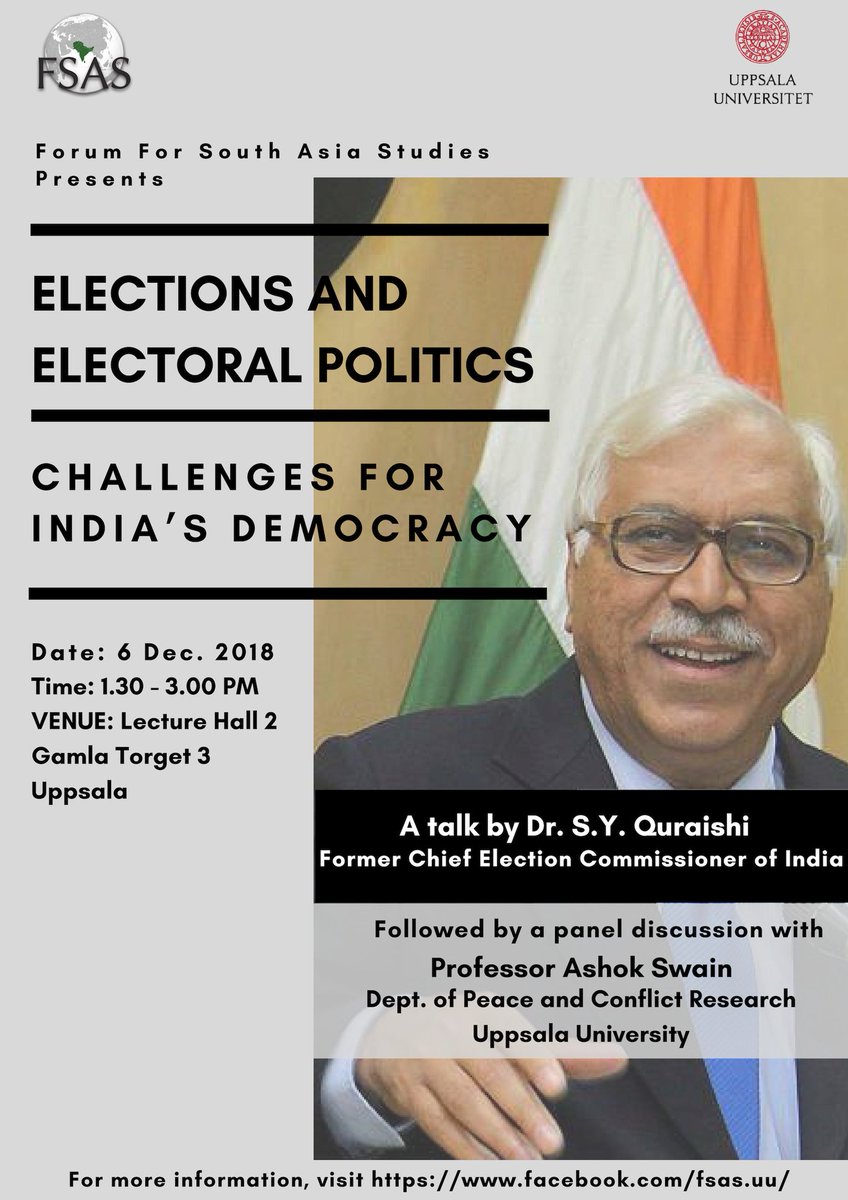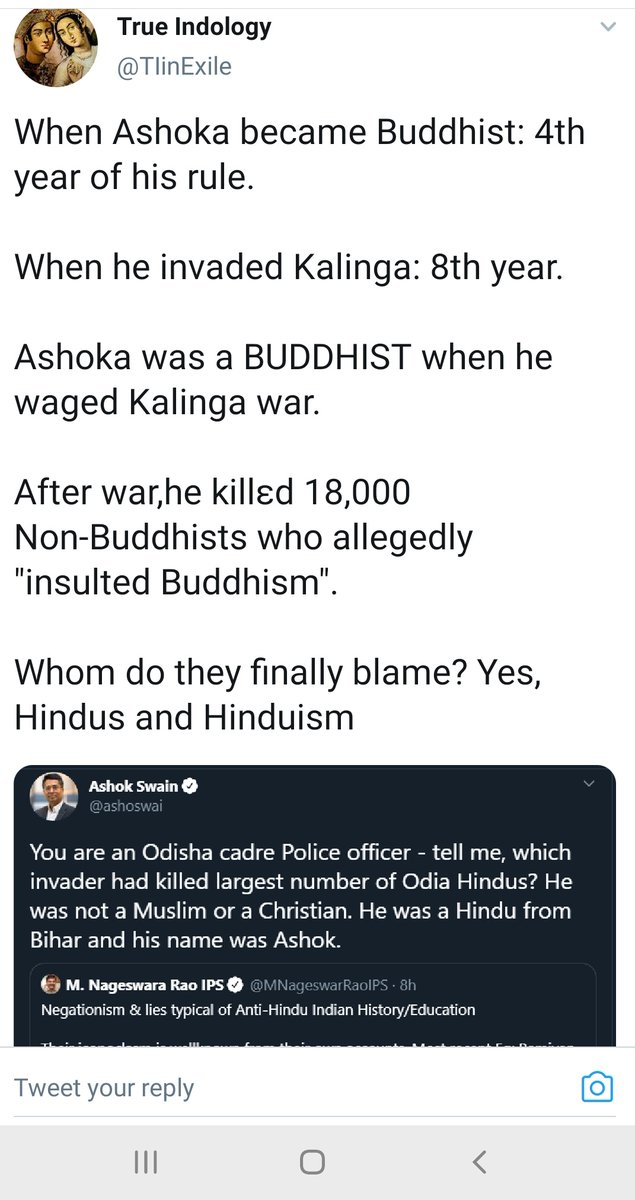Rayagada: A two-wheeler rider was slapped a fine of Rs 18,500 Sunday night for flouting traffic norms in Rayagada town under the provisions as envisaged in Motor Vehicles (Amendment) Act, 2019. According to a source, the violator named Y Sagar was issued a challan for allegedly driving a scooter which has been registered in the name. A BJP spokesperson tweeted that the Teen Murti Chowk will be renamed as “Teen Murti Haifa Chowk”, as a way of paying tribute to Indian soldiers who played role in British Army in World War 1 to liberate the city from Ottoman Empire Following this. Ashok Swain writing is akin to saying 5,000yrs of Chinese/ Asian cuisine can never match 200yrs of American fast food taste, no way because its Oriental. Mac for cheap. D&d 5e disease dmg. 1) Culture Culturally, Oriental is deep and rich beyond US 200yrs fast food civilization comparison. ‘Professor’ Ashok Swain, known for his anti-India rhetoric and Hinduphobia, deactivates his Twitter account saying he needed a break There were speculations that Swain's account was deleted by Twitter until Swain clarified that he deactivated his Twitter account himself 26 November, 2020. Twitter; Email; Images; 1 Match for Ashok Swain. Public Records & Background Checks. Sponsored by BeenVerified. Ashok Kumar Swain, age 46, Poughkeepsie, NY 12601 View Full Report. Known Locations: Poughkeepsie NY, 12601, Poughkeepsie NY 12603 Possible Relatives: Ashok K Swain, Namita M Swain.
| Born | 19 February 1965 (age 56) Patalda, Puri, Odisha, India |
|---|---|
| Nationality | Swedish[citation needed] |
| Alma mater | Jawaharlal Nehru University |

Ashok Swain (born 19 February 1965) is an Indian-born academic and professor of peace and conflict research at the Department of Peace and Conflict Research, Uppsala University.[1] In 2017, he was appointed as the UNESCO Chair on International Water Cooperation and became the first UNESCO Chair of Uppsala University.[2][3] Swain received his PhD in 1991 from the School of International Studies of Jawaharlal Nehru University, New Delhi, India.
Selected publications[edit]
Books[edit]
- Ashok Swain & Anders Jägerskog, Emerging Security Threats in the Middle East: The Impact of Climate Change and Globalization (Lanham: Rowman & Littlefield, 2016).[4]
- Anton Earle, Ana Elise Cascao, Stina Hansson, Anders Jägerskog, Ashok Swain, & J¨oakim Öjendal, Transboundary Water Management and the Climate Change Debate (London: Routledge, 2015).[5]
- Ashok Swain, Understanding Emerging Security Challenges: Threats and Opportunities (London: Routledge, 2012).[6]
- Ashok Swain, Struggle Against the State: Social Network and Protest Mobilization in India (Farnham: Ashgate Publishing Limited, 2010).[7]
- Ashok Swain, Managing Water Conflict: Asia, Africa and the Middle East (London & New York: Routledge, 2004).[8]
- Ashok Swain, The Environmental Trap: The Ganges River Diversion, Bangladeshi Migration and Conflicts in India (Uppsala: Department of Peace and Conflict Research, 1996).[9]
- Ashok Swain, Environment and Conflict: Analyzing the Developing World (Uppsala: Department of Peace and Conflict Research, 1993).[10]
Edited books[edit]

- Anders Jägerskog, Michael Schulz & Ashok Swain, Routledge Handbook on Middle East Security (London: Routledge, 2019).[11]
- Ashok Swain & Joakim Öjendal, eds., Routledge Handbook of Environmental Conflict and Peacebuilding (London: Routledge, 2018).[12]
- Anders Jägerskog, Ashok Swain & Joakim Öjendal, eds., Water Security (4 Volume Set) (London: Sage Publications Ltd, 2014).[13]
- Ramses Amer, Ashok Swain & Joakim Öjendal. eds., The Security-Development Nexus: Peace, Conflict and Development (London: Anthem Press, 2012).[14]
- Ashok Swain, Ramses Amer & Joakim Öjendal. eds., The Democratization Project: Opportunities and Challenges (London: Anthem Press, 2009).[15]
- Ashok Swain, Ramses Amer & Joakim Öjendal. Eds., Globalization and Challenges to Building Peace (London, New York & Delhi: Anthem Press, 2007).[16]
- Ashok Swain, ed., Islam and Violent Separatism: New Democracies in Southeast Asia (London, New York & Bahrain: Kegan Paul, 2007).[17]
- Ashok Swain, ed.,Diasporas, Armed Conflicts and Peacebuilding in their Homelands(Uppsala University, Department of Peace and Conflict Research, 2007).[18]
- Fiona Rotberg & Ashok Swain, eds., Natural Resources Scarcity in South Asia: Nepal's Water(Stockholm: Institute for Security and Development Policy, 2007).[19]
- Ashok Swain, ed., Education as Social Action: Knowledge, Identity and Power (Basingstoke & New York: Palgrave Macmillan, 2005).[20]
Ashok Swain Twitter Page
References[edit]
- ^'Ashok Swain - Uppsala University, Sweden'. katalog.uu.se (in Swedish). Retrieved 2018-09-14.
- ^'First UNESCO Chair at Uppsala University - Uppsala University, Sweden'. www.uu.se (in Swedish). Retrieved 2018-09-14.
- ^'Unescoprofessurer i Sverige ' Svenska Unescorådet'. www.unesco.se (in Swedish). Retrieved 2018-09-14.
- ^Swain, Ashok; Jägerskog, Anders (2016). Emerging Security Threats in the Middle East: The Impact of Climate Change and Globalization. Rowman & Littlefield. ISBN9781442247659. Retrieved 28 May 2019.CS1 maint: discouraged parameter (link)
- ^Earle, Anton; Cascao, Ana Elisa; Hansson, Stina; Jägerskog, Anders; Swain, Ashok; Öjendal, Joakim (2015). Transboundary Water Management and the Climate Change Debate. Routledge. ISBN9781136228360. Retrieved 28 May 2019.CS1 maint: discouraged parameter (link)
- ^Swain, Ashok (2013). Understanding Emerging Security Challenges: Threats and Opportunities. Routledge. ISBN9780415523301. Retrieved 28 May 2019.CS1 maint: discouraged parameter (link)
- ^Swain, Ashok (2016). Struggle Against the State: Social Network and Protest Mobilization in India. Routledge. ISBN9781317049050.
- ^Swain, Ashok (2004). Managing Water Conflict: Asia, Africa and the Middle East. Routledge. ISBN9781135768836. Retrieved 28 May 2019.CS1 maint: discouraged parameter (link)
- ^Swain, Ashok (1996). The Environmental Trap: The Ganges River Diversion, Bangladeshi Migration, and Conflicts in India. Department of Peace and Conflict Research, Uppsala University. ISBN9789150611458. Retrieved 28 May 2019.CS1 maint: discouraged parameter (link)
- ^Swain, Ashok (1993). Environment and Conflict: Analysing the Developing World. Uppsala University. ISBN9789150609905. Retrieved 28 May 2019.CS1 maint: discouraged parameter (link)
- ^Jägerskog, Anders; Schulz, Michael; Swain, Ashok (2019). Routledge Handbook on Middle East Security. Routledge. ISBN9781351718363. Retrieved 28 May 2019.CS1 maint: discouraged parameter (link)
- ^Swain, Ashok; Öjendal, Joakim (2018). Routledge Handbook of Environmental Conflict and Peacebuilding. Routledge. ISBN9781315473758. Retrieved 28 May 2019.CS1 maint: discouraged parameter (link)
- ^Jägerskog, Anders; Swain, Ashok; Öjendal, Joakim (2014). Water Security. SAGE Publications. ISBN9781446293928. Retrieved 28 May 2019.CS1 maint: discouraged parameter (link)
- ^Amer, Ramses; Swain, Ashok; Öjendal, Joakim (2013). The Security-Development Nexus: Peace, Conflict and Development. Anthem Press. ISBN9781783080656. Retrieved 28 May 2019.CS1 maint: discouraged parameter (link)
- ^Swain, Ashok; Amer, Ramses; Öjendal, Joakim (2011). The Democratization Project: Opportunities and Challenges. Anthem Press. ISBN9780857283993.
- ^Swain, Ashok; Amer, Ramses; Öjendal, Joakim (2008). Globalization and Challenges to Building Peace. Anthem Press. ISBN9781843312871.
- ^Swain, Ashok (2014). Islam And Violent Separatism. Routledge. ISBN9781135024420.
- ^Bush, Kenneth D. (2007). Diasporas, Armed Conflicts and Peacebuilding in Their Homelands. Uppsala Universitet. ISBN9789150619638.
- ^Swain, Ashok (2007). Natural Resources Scarcity in South Asia: Nepal's Water (Stockholm: Institute for Security and Development Policy, 2007). Editor with Fiona Rotberg. Stockholm: Institute for Security and Development Policy. Retrieved 28 May 2019.CS1 maint: discouraged parameter (link)
- ^Swain, A. (2005). Education as Social Action: Knowledge, Identity and Power. Springer. ISBN9780230505605.
External links[edit]
Ashok Swain Twitter Images

Ashok Swain Twitter Account Suspended
